In Collision Course, an encounter between an aspiring Nigerian artiste and a struggling Nigerian police officer unclogs the disappointment, fear and frustration that have accumulated in their dissatisfied personal lives. From the chilling prologue to the final moments of the film, the events that build up in their lives offer commentary on police brutality in Nigeria, but it comes a bit too simplified as the Nigerian government, the true villain, is simply left to shadow the 1hr 12min runtime.
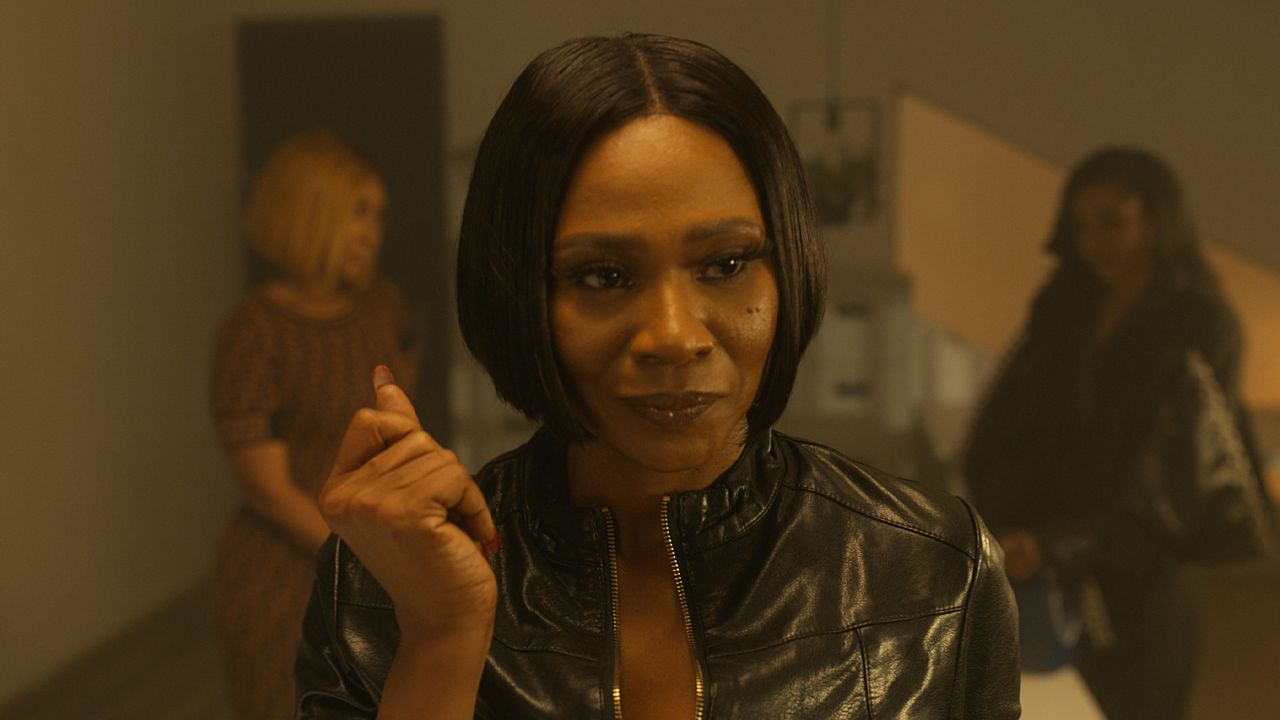 ‘Glamour Girls’ Review: Nollywood Classic Remake Falls Short of the Glitz
‘Glamour Girls’ Review: Nollywood Classic Remake Falls Short of the Glitz
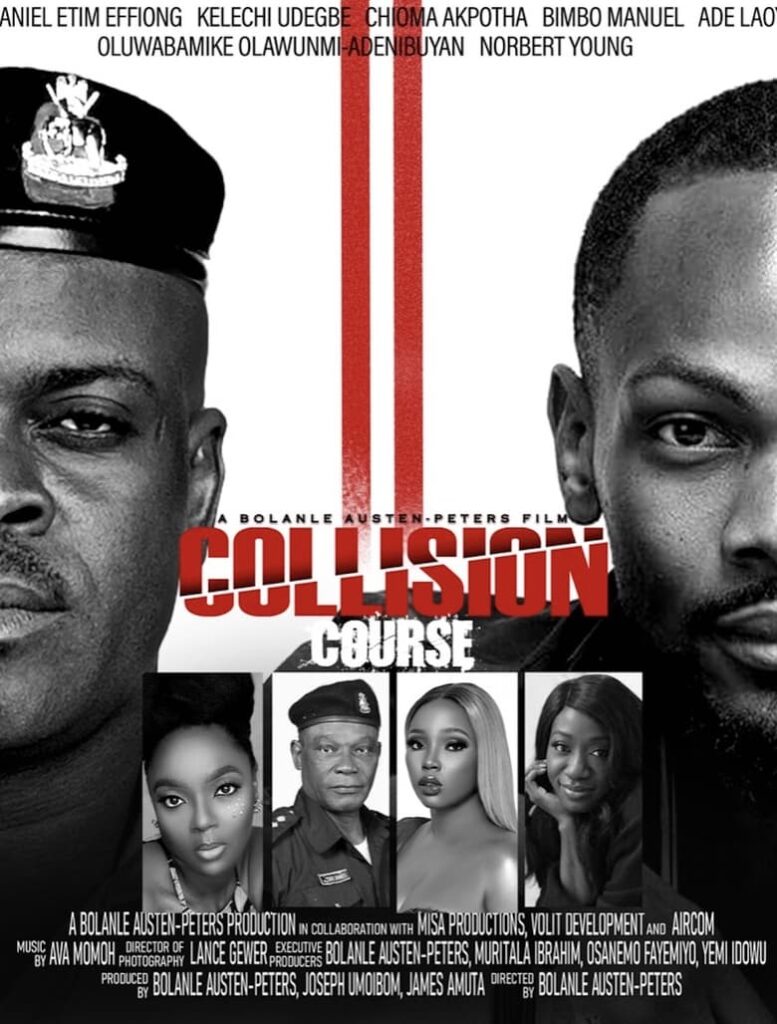
Yes, the Nigerian government is the gloomy big bad cast above the several drone shots of Lagos. We are all aware that close to every problem circling the men’s lives— an idealist law graduate and an underachieving family man— is a Nigerian problem. They are not new explanations that have been unearthed and placed on the big screen. Collision Course has only amplified unaccountability, two years after one of the darkest moments in recent Nigerian history. Scribed by a Nigerian, it offers what is a simple plot and minimal key characters, but with deeper complex issues that the film isn’t equipped to engage.
No, every film doesn’t have to end with a message. But when you decide to make movies revolving around certain topics, you are hinting that you’ve something salient to say concerning them beyond the obvious. Collision Course glosses more important aspects in a manner that leaves you wondering why it is being depicted on screen, with no newer layer. What’s the function of this piece of art? What role should it serve beyond telling the large number of Netflix distribution reach that EndSARS protests shouldn’t have happened and there’s a reason Nigerian police officers (and other uniformed officers) are the way they are. This is a weighty topic and the team behind this drama fails to convince us that they boast the tools to deftly handle the subject.
Collision Course was directed by a Nigerian, who has attempted to touch on a crucial societal topic in their earlier 2022 release Man of God, a film that struggled to inspire faith. With these carefully chosen stories, one observes the burning desire to tell topical narratives. At the same time, one wonders if the Nigerian team behind these movies is working with a veil. An artist with these carefully chosen topics is with a dagger. But it seems the team is wielding daggers and striking every direction with a blindfold. This time the dagger has struck a more sensitive subject that covers more Nigerians beyond the religious tent of Man of God.
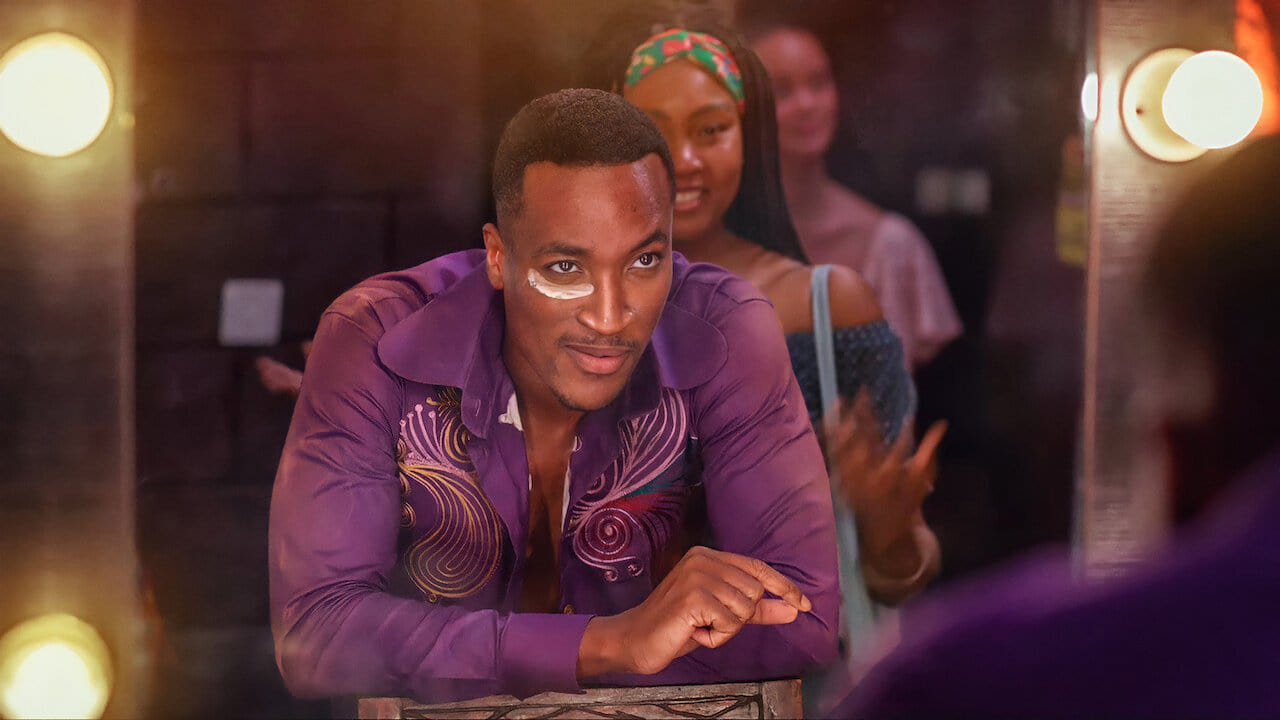 ‘The Man Of God’ Review: Bolanle Austen-Peters’ Netflix Release Fails to Inspire Faith
‘The Man Of God’ Review: Bolanle Austen-Peters’ Netflix Release Fails to Inspire Faith
Cinema could be therapy, stabbing and slicing sincerity, opening the right holes and not just wielding the art for spectacle in this pivotal moment of our history. As a culturally-feeble society where there are still naysayers and defenders of the 20-10-2020 event, Collision Course proves to be an incubus, rather than an artistic medium of revival. Critical thinker Roland Barthes once postulated, “The death of the author is the birth of the reader”, which places the power of interpretation in the hands of the reader (audience). Regardless of what the author’s (filmmaker’s) intent might be, they will be absent from almost every discourse concerning their work. Unfortunately, Collision Course is guilty of pretentiousness. Beyond the figurative death of the author and moving to the actual death of the author, since the work will outlive the brains behind it; how will this piece of cultural material be interpreted and critiqued years later? In the eyes of millions of people that will refer to this film, the author hasn’t convincingly positioned themselves on the side of the victimized. Even in a few moments that seem so, doubts creep in.
This is a general Nollywood problem whereby the filmmakers believe they hold the ultimate interpretation of their work, forgetting that the moment it screens, it belongs to your audience. This is the reason many shouldn’t be shortsighted. What story does Collision Course tell us about this sad moment in our history that still continues to be a menace and seems to have outgrown the government? Events like EndSARS happen, as cultural creators and mediators, what should stick in one’s mind is how to immortalise the d-day, leaving no doubt, in honour of the lives that were lost under a democracy.
Collision Course has won awards: best film in West Africa at the AMVCA, best script at AMAA, and best actor at AFRIFF. It is easy to be fooled by the story, thinking it has justified its existence. To have told a well-rounded story beyond the emotional bait characters, the all-shadowy villain, the government, should have been paid more attention to. Sadly, it is a difficult path to tread in Nollywood. Where then does that leave us? The story should have been left alone the moment the core villain wouldn’t be properly engaged.
You’re telling these stories, but you’re not audible. These are not issues to gloss over. As we try to get into the head of our Nigerian victim, important scenes that should carry the most emotional weight are flattened by poor editing choices. Even in the pivotal moments of their encounter, the camera is unsure whom to stay with. Whose side are you on? I believe the character that represents the thousands of lives lost should have carried more importance.
The joy of this botched storytelling is that other filmmakers can follow a new path; learn from the film’s mistakes and come out to produce worthier, well-rounded narratives than Collision Course. For now, there’s no worthy comparison to juxtapose the film with. The hope is that in the near future, with the arrival of different narratives, we can all look back and understand better. There’ll be no WKMUp opponents, there’ll be no Collision Course proponents, but Nigerians looking back as Nigerians with refined realization. The death of the author is truly the birth of a reader; how any viewer chooses to interpret this wavering film (of course, with solid evidence from the material), shouldn’t be told they are wrong. Only if we didn’t have to do our learning with such a delicate national subject.
Rating: 5/10
Share your thoughts in the comments section or on our social media accounts.
Keep track of upcoming films and TV shows with Google calendar.
Side Musings
- Oga Titus, happy weekend sir!
- We might gradually be getting to a period where we need test audience in Nollywood…and your family members do not count.
- When she asks if he has the balls to do what TARZ people do, I asked myself if it’s the expected JD of TARZ or the known extrajudicial killings and stealing as shown in the prologue.
- What’s the Z in TARZ?
- What was that end credit, lumping everyone together?
- Cinema is no joke, please and please again. It has been such commonplace in our lives, mostly as home videos than cinema outings, that we don’t notice the bigger picture.
- Read our 2021 film essay on EndSARS.
- And yes, I watched it more than once. 3 times.
Collision Course is streaming on Netflix.

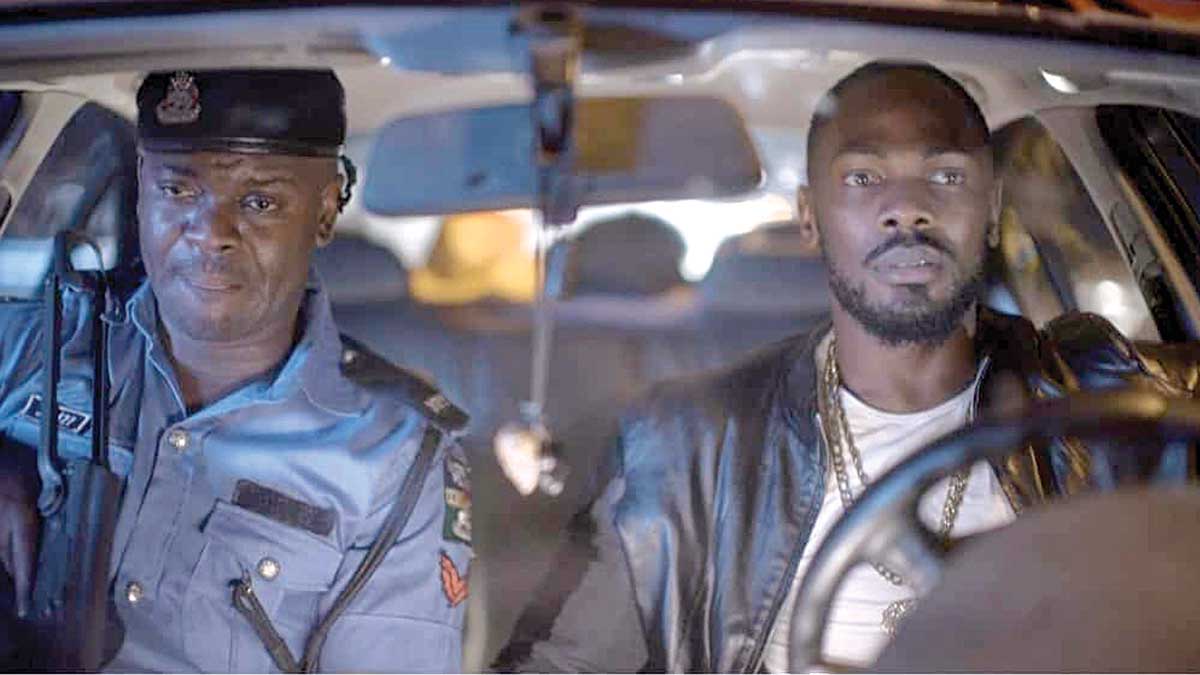
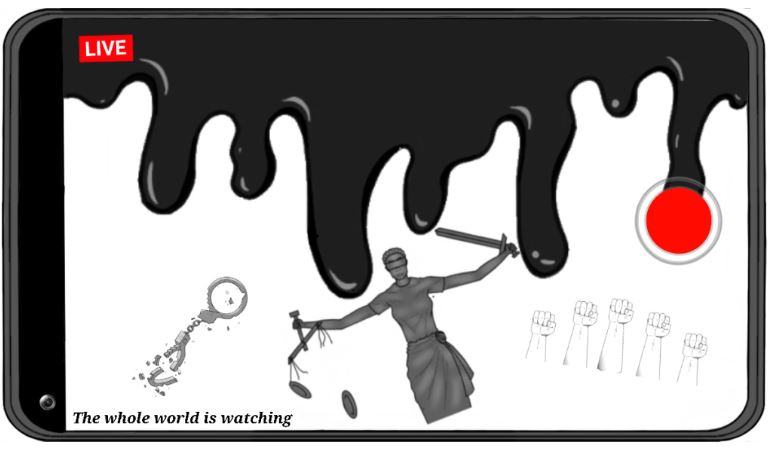
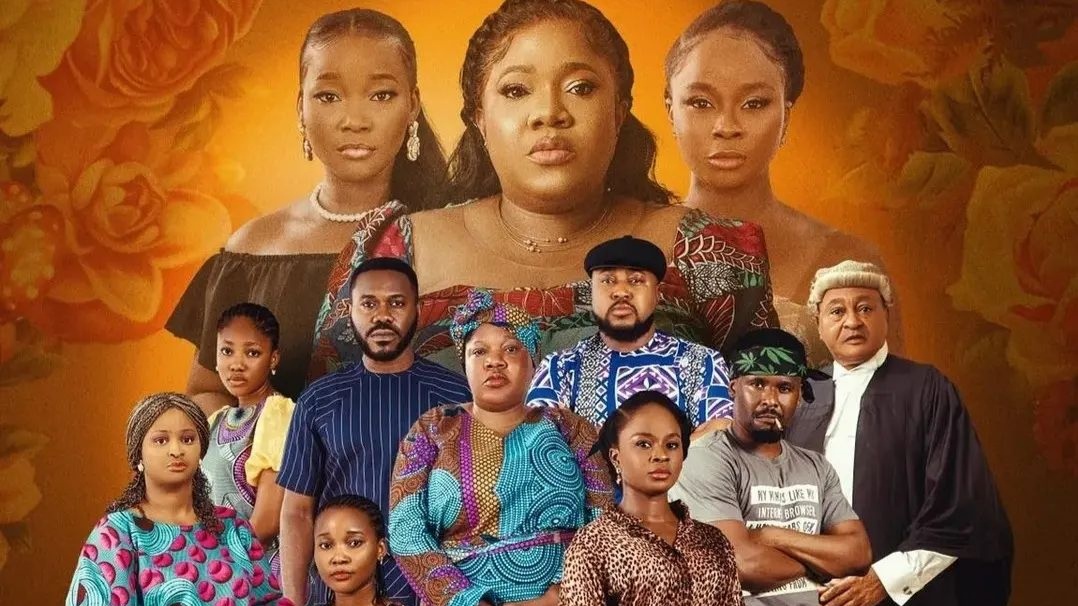


Apt. From the title sentence down to the last sentence in the review. On hindsight, I was incoherent in my review of the film. The political intonation of the film wasn’t fully captured in my review. Ikeade, thanks for this.
P.S: You na our Egbon for this film critic ” industry”
I don’t agree with this review. We should do more movies like this to call out Police brutality in Nigeria. Look at what happened with End SARS a few years now. So many innocent lives lost and nothing happened. This movie is the best nollywood movie I have seen in a long time. Weldone to the producers, cast and crew. People will rather praise meaningless movies like chief daddy, etc. makes no sense to me